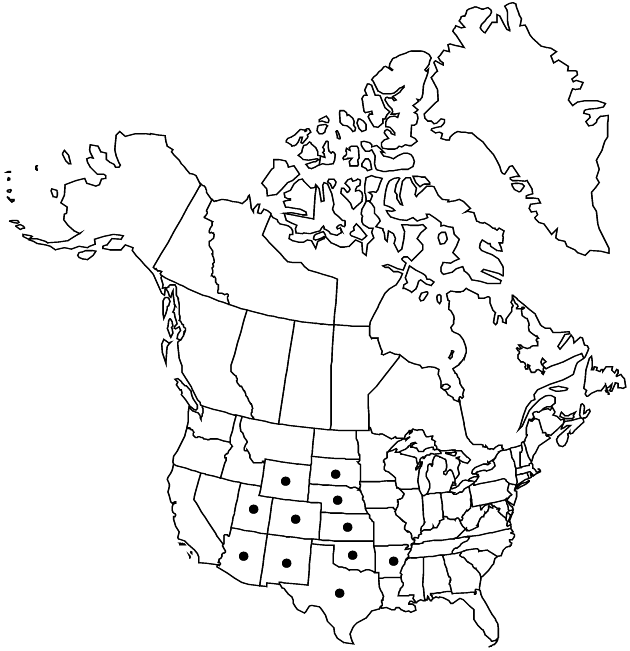Thelesperma megapotamicum
Revis. Gen. Pl. 3(2): 182. 1898.
Basionym: Bidens megapotamica Sprengel
Synonyms: Thelesperma gracile (Torrey) A. Gray
Revision as of 01:01, 27 July 2019 by FNA>Volume Importer
Perennials or subshrubs, (20–)30–80+ cm. Cauline leaves ± scattered over proximal 1/2–3/4 of plant heights, internodes mostly 40–100 mm; lobes mostly linear to filiform, sometimes oblanceolate, 20–40(–50+) × 0.5–1(–2.5) mm. Calyculi of 3–5+ ovate to oblong bractlets 1–2(–3) mm. Ray florets 0. Disc corollas yellow, often with red-brown nerves, throats shorter than lobes. Cypselae 5–8 mm; pappi 1–2(–3) mm. 2n = 22, 44.
Phenology: Flowering (Apr–)May–Oct.
Habitat: Disturbed places on sands or clays, oak/juniper woodlands, desert scrub, yellow-pine forests
Elevation: 300–2900 m
Distribution

Ariz., Ark., Colo., Kans., Nebr., N.Mex., Okla., S.Dak.. Tex., Utah, Wyo., Mexico (Chihuahua, Coahuila), South America.
Discussion
Thelesperma megapotamicum sometimes persists after plantings outside its natural range in the flora area and may become established (e.g., in California).
Selected References
None.
Lower Taxa
None.